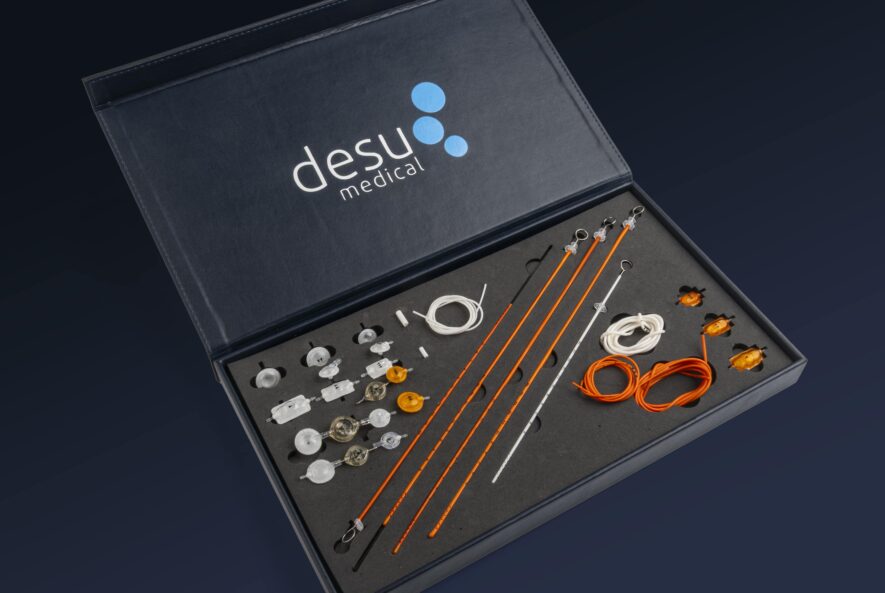
What is Ventriculoperitoneal Shunting?
Ventriculoperitoneal shunting is a highly effective surgical procedure used to treat hydrocephalus — a condition characterized by an abnormal buildup of cerebrospinal fluid (CSF) in the brain’s ventricles. Left untreated, hydrocephalus can lead to increased intracranial pressure, brain damage, and life-threatening complications.
Modern medical advancements have refined the procedure of ventriculoperitoneal shunting, making it safer, more adaptable, and highly customizable for both pediatric and adult patients.
How Does Ventriculoperitoneal Shunting Work?
The procedure involves the implantation of a shunt system designed to divert excess CSF from the brain ventricles into the peritoneal cavity, where it can be absorbed by the body. A standard ventriculoperitoneal shunting system consists of:
-
A proximal catheter (placed in the brain ventricle)
-
A valve mechanism (to control CSF flow)
-
A distal catheter (ending in the peritoneal cavity)
Why is Ventriculoperitoneal Shunting Critical in Neurosurgery?
The demand for high-quality ventriculoperitoneal shunting systems continues to rise globally, particularly in pediatric neurosurgery and geriatric care, where hydrocephalus cases are frequent.
Doctors and hospitals require shunt systems that offer:
-
Long-term durability
-
Minimal infection risk
-
Adjustable valve pressure settings
-
MRI compatibility
-
Safe and biocompatible materials
Why Doctors Trust Desu for Ventriculoperitoneal Shunting Systems
Desu Medical has established itself as a trusted manufacturer of medical implants and surgical solutions worldwide. Their ventriculoperitoneal shunting systems stand out in the global medical market due to superior engineering, innovative materials, and high safety standards.
When doctors choose Desu, they gain access to:
1. Advanced Valve Technology
Desu’s shunt systems are equipped with precision-engineered valves that allow adjustable or fixed pressure settings depending on clinical needs.
2. Infection Prevention
Options for antibiotic-impregnated catheters significantly reduce infection rates, a crucial factor in post-operative recovery.
3. Flexible Models
Desu offers ventriculoperitoneal shunting systems for pediatric and adult patients with various pressure options, enabling personalized treatment protocols.
4. Proven Clinical Outcomes
Desu’s systems are used in hospitals and neurosurgical clinics worldwide, demonstrating outstanding clinical success rates.
Key Benefits of Ventriculoperitoneal Shunting from Desu
| Feature | Benefit for Hospitals & Doctors |
|---|---|
| Biocompatible Material | Reduced inflammatory response and long-term safety |
| Adjustable Valve Options | Customized CSF management for each patient |
| Antibacterial Catheters | Lower risk of shunt infection and revision surgeries |
| MRI Compatibility | No restrictions on patient imaging post-surgery |
| Cost-Effective Packages | Optimized pricing for healthcare providers |
Ventriculoperitoneal Shunting: Applications in Modern Medicine
Pediatric Hydrocephalus Treatment
Newborns and infants with congenital hydrocephalus benefit immensely from Desu’s flexible shunt systems, ensuring safe growth and development.
Geriatric Hydrocephalus Management
Elderly patients with normal pressure hydrocephalus (NPH) regain mobility and cognitive function after successful ventriculoperitoneal shunting.
Tumor-Related Hydrocephalus
Patients with brain tumors often require temporary or permanent CSF diversion, where Desu’s systems provide reliable drainage solutions.
Doctor Reviews & Testimonials on Desu’s Ventriculoperitoneal Shunting Systems
“We’ve been using Desu’s ventriculoperitoneal shunting systems for over five years in our neurosurgery unit. The valve precision and infection prevention features are exceptional.”
— Dr. Michael Torres, Neurosurgeon, Germany
“Desu offers unmatched customer support and product customization for our hospital’s diverse patient needs. Their shunt systems deliver predictable results with minimal complications.”
— Dr. Ayşe Demir, Pediatric Neurosurgeon, Türkiye
Frequently Asked Questions (FAQs)
1. What is the lifespan of a ventriculoperitoneal shunt from Desu?
Desu’s systems are designed for long-term implantation, typically lasting several years without complications, depending on patient conditions.
2. Are Desu’s ventriculoperitoneal shunting systems safe for MRI scans?
Yes, Desu manufactures MRI-compatible shunt systems, allowing patients to undergo routine imaging without concerns.
3. Does Desu provide technical support for hospitals?
Absolutely. Desu offers technical guidance, educational materials, and after-sales service for all its products, ensuring optimal use.
4. Can I purchase Desu’s ventriculoperitoneal shunting systems directly?
Yes, hospitals and medical distributors can purchase Desu’s high-quality shunt systems directly by contacting the Desu Medical sales team.
Why Hospitals Should Buy Ventriculoperitoneal Shunting Systems from Desu
Desu Medical combines innovation, safety, and affordability in its ventriculoperitoneal shunt product line. By sourcing from Desu, hospitals benefit from:
-
Regulatory-compliant manufacturing
-
Competitive pricing
-
Trusted global distribution
-
Dedicated medical product support
Ready to Upgrade Your Hydrocephalus Treatment Protocol?
If your hospital or neurosurgical clinic is seeking advanced ventriculoperitoneal shunting solutions, Desu Medical offers the quality, safety, and reliability you need.
Contact Desu today to learn more about their shunt systems and request a product catalogue.
“Choose Desu for ventriculoperitoneal shunting systems trusted by leading doctors and hospitals worldwide.”
